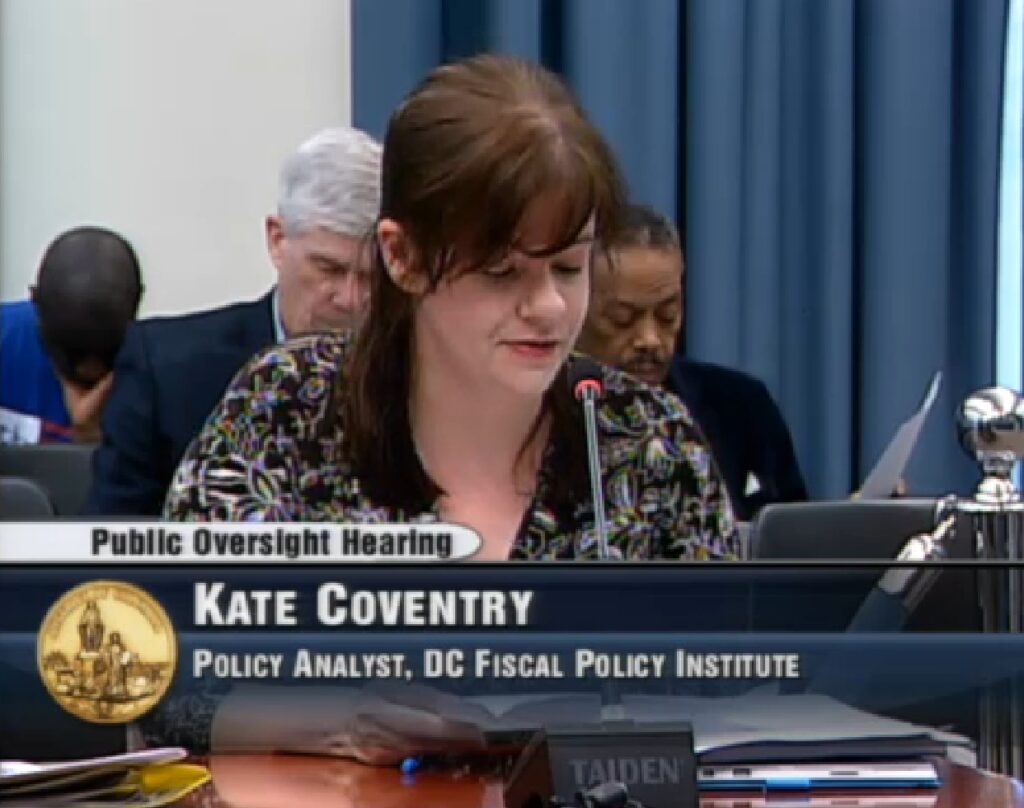On October 1, 2016, an estimated 6,500 families in the District of Columbia will lose their monthly Temporary Assistance for Needy Families (TANF) benefits. These families’ benefits were originally set to expire October 2015, but Mayor Bowser and the D.C. Council voted to extend the program for one additional year. The new deadline is fast approaching, however, and there is concern that many families are still not prepared to give up that added income.
The program was established to move heads-of-household with dependent children into the workforce through skills training and job placement, providing extra cash assistance during this transition. Kate Coventry, a policy analyst with the DC Fiscal Policy Institute (DCFPI), believes that many TANF recipients struggled with poor job development services, which have since improved.
“At first, [TANF services] were very one size fits all,” she said, noting that people who couldn’t read were sometimes matched with the same programs that college graduates were put into. Recently, discussion and focus groups have emphasized that one-on-one case management is going to be crucial to helping people find housing, employment, and stability. “Every story is different,” Coventry said.
This sensitivity to different circumstances and different solutions has led DCFPI to propose a change to TANF guidelines. They believe that there are some cases in which TANF recipients should be able to receive benefits past their projected deadline. These instances, referred to as hardship extensions or exemptions, have been compiled into a bill and posted on the DCFPI website. The bill would exclude any month in which a TANF family is functioning under a hardship exemption from counting toward that family’s 60 month cut off. Examples of these exemptions include families with a child at risk of entering the foster care system or an adult that faces significant barriers to employment such as low literacy or a severe physical handicap.
Coventry recently published a report called “When Every Dollar Counts,” which expands upon several studies that have proved how much even a small addition to a family’s monthly income can benefit that family’s children. This is one of the primary reasons that Coventry wants to see TANF benefits extended for families who have not yet managed to escape from poverty. “Child poverty hurts kids, and even small amounts of income can help,” she said.
Redirecting and restructuring TANF programs will take considerable effort from the city, including research and a program design. At this point in the fight to extend benefits for those who still need them, Coventry is trying to spread the word to citizens and local government. “[We’re planning] a lot of meetings,” she said. “We’re trying to meet with every council member.”
In her testimony at the Fiscal Year 2015-2016 Performance Hearing, Department of Human Services (DHS) Director Laura Zeilinger outlined the DHS’s goals for 2016. One was to “support TANF participants to improve their economic stability and well-being through the creation and improvement of participant-driven service interventions, and ensure systems are in place to address the specific needs of those who will reach a time limit for cash benefits beginning October 1, 2016.”
Dora Taylor, Public Information Officer at the DHS, said that the Department of Human Services has been working diligently to preserve the well-being of TANF families who may be losing their benefits soon. She said that these families can improve their situation and prepare themselves for the cut-off by actively working with their work readiness and job placement counselors.
DHS is currently conducting personalized outreach in an effort to connect with TANF recipients, both to remind them of the impending financial cutoff and to help them keep moving forward in the employment process. “We just completed the first round of eight rounds of phone calls to families,” Taylor said. DHS is also hosting open houses to meet with clients and plan their next steps in education or employment. The events are being held in community and recreation centers across the city. “We’re making these as convenient as possible.”
In addition to calls and community meetings, DHS is distributing advertisements and reminders in all of through all of the services it offers. “This is the most aggressive ad campaign we’ve ever run,” said Taylor. “We are even considering paid advertisements.”
She encourages current TANF recipients to call the Office of Work Opportunity with any questions or concerns they might have. The office can be reached at 202.698.1860.







